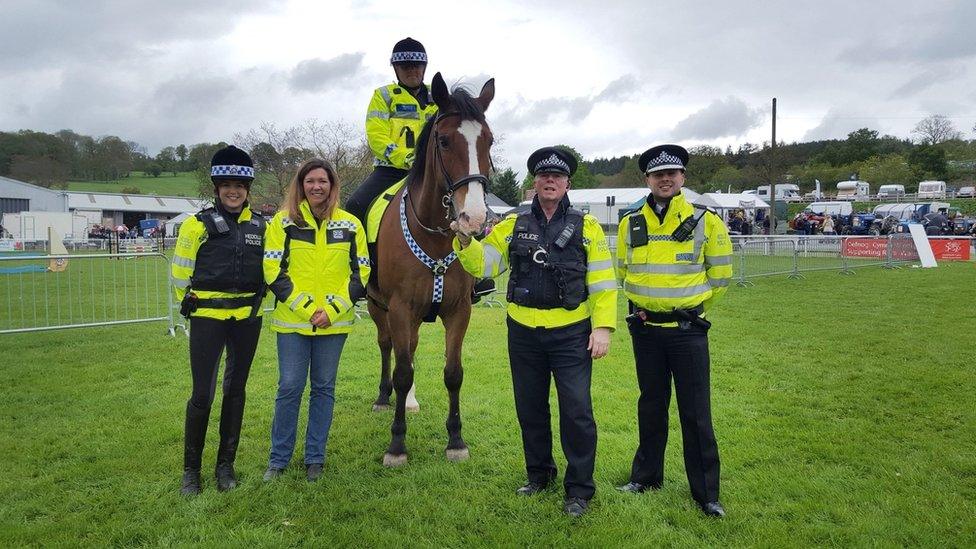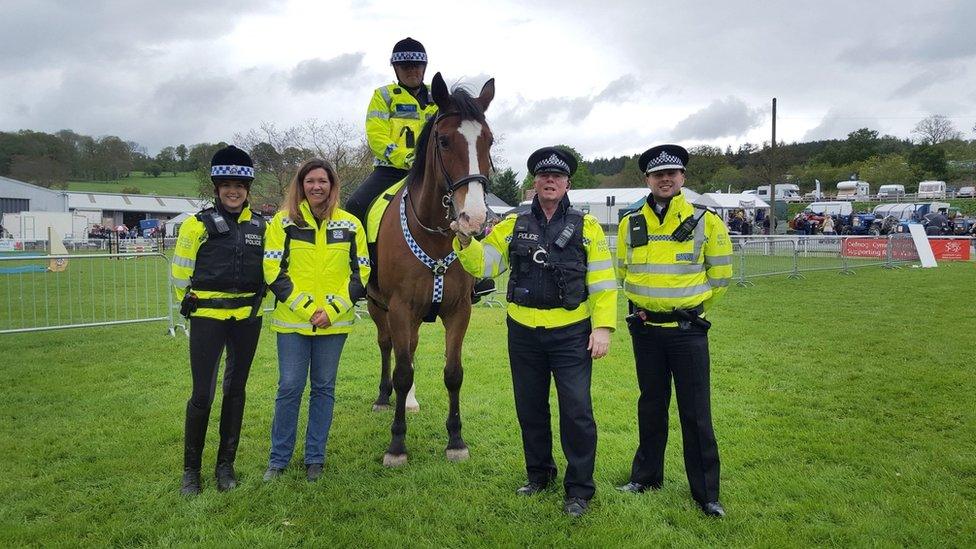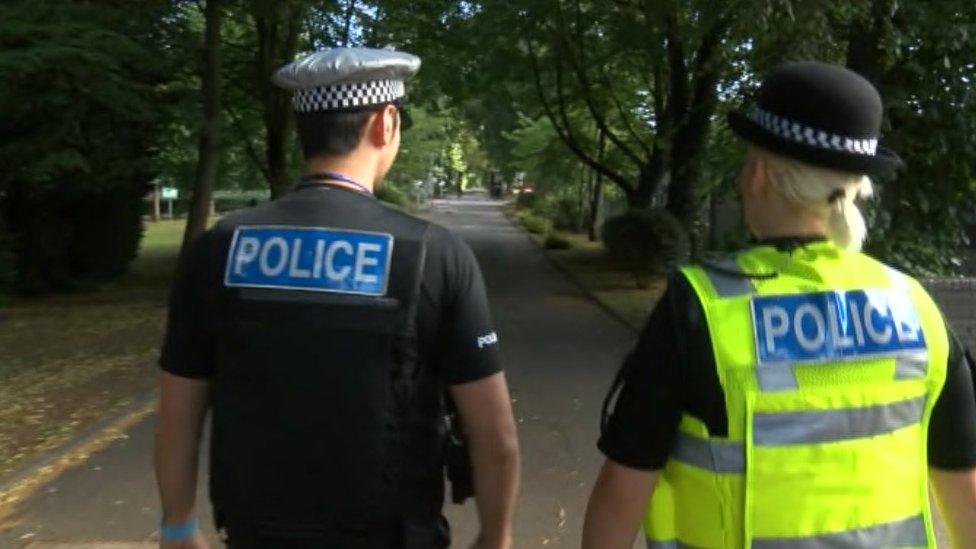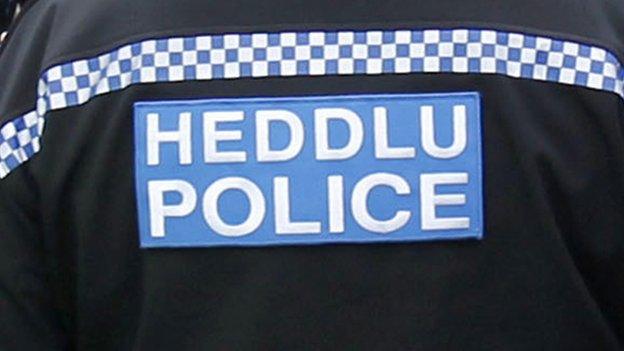Special Constables to boost policing in Wales amid threats
- Published

Cairn Newton-Evans became a special constable after suffering a homophobic attack
The number of special constables in Wales is to be increased to help police dealing with the heightened security threat, their representing body says.
There are currently about 450 police volunteers, external in Wales, but more will be recruited by 2020.
The Association of Special Constabulary Chief Officers (ASCCO) said specials often had skills from their day jobs to help in areas such as cyber crime.
North Wales Police hopes to recruit an extra 100 special constables by 2020.
The other Welsh police forces are also increasing their numbers, although they have not given themselves a target.
Special constables are fully-trained frontline officers who can respond to 999 calls.
Terror attack
Ian Miller, chairman of the ASCCO, denied more specials were being recruited due to police cuts, saying they added value to policing.
"I think by increasing the number of specials, it gives resilience to police forces with the security threat," he said.
"There's an advantage in being able to call on fully qualified people to provide an additional resource during times of need."

Dyfed-Powys Police recently launched a mounted special constabulary to tackle rural crime
Mark Owen, chief officer for North Wales Police's Special Constabulary, said the Manchester terror attack proved how invaluable specials were.
"A lot of special constables in north Wales turned up for duty without anybody asking them following the attack," he said.
"They knew officers were going to help in Greater Manchester so they came in, put their coats on and went out on the streets of north Wales. It gives us that flexible workforce."
Special constables have been working alongside paid police officers in England and Wales for the past 185 years.
In addition to their regular jobs, they must carry out at least 16 hours of police work a month - although many do much more - and have the power to arrest people.
Some work as specialist officers, such as with the the road safety unit or fighting rural crime, while others are recruited for knowledge obtained in their regular jobs to help in the fight against cyber crime and fraud.
North Wales Police - which has 188 special constables - held a recruitment event in Llandudno on Saturday to coincide with National Specials weekend.
Recruitment is a big issue for the police forces, as many special constables go on to join the police service as paid officers, leaving vacancies.
Gwent Police and South Wales Police have recently taken on more specials, taking both of their totals to 108.
Violent homophobic attack
Dyfed-Powys Police is also recruiting in the coming months to add to its 89 specials.
Officers include people who are cyber experts, mental health nurses, doctors, managers and accountants in their regular jobs.
Cairn Newton-Evans, chief officer for Dyfed-Powys Police's Special Constabulary and the Welsh representative for ASCCO, decided to become a special after he was the victim of a violent homophobic attack in his hometown of Ammanford, Carmarthenshire, in 2008.
"I thought maybe I could try and stop anyone else from going through what I had," said Mr Newton-Evans, who also works in retail and is studying for a degree in law and public services.
"You're giving up your own time and you're not getting paid. You have to really want to do it and make a difference to your community.
"I'm proud I don't get paid - I'm doing it to make people feel safe."
- Published20 May 2017

- Published6 April 2017

- Published17 March 2015
